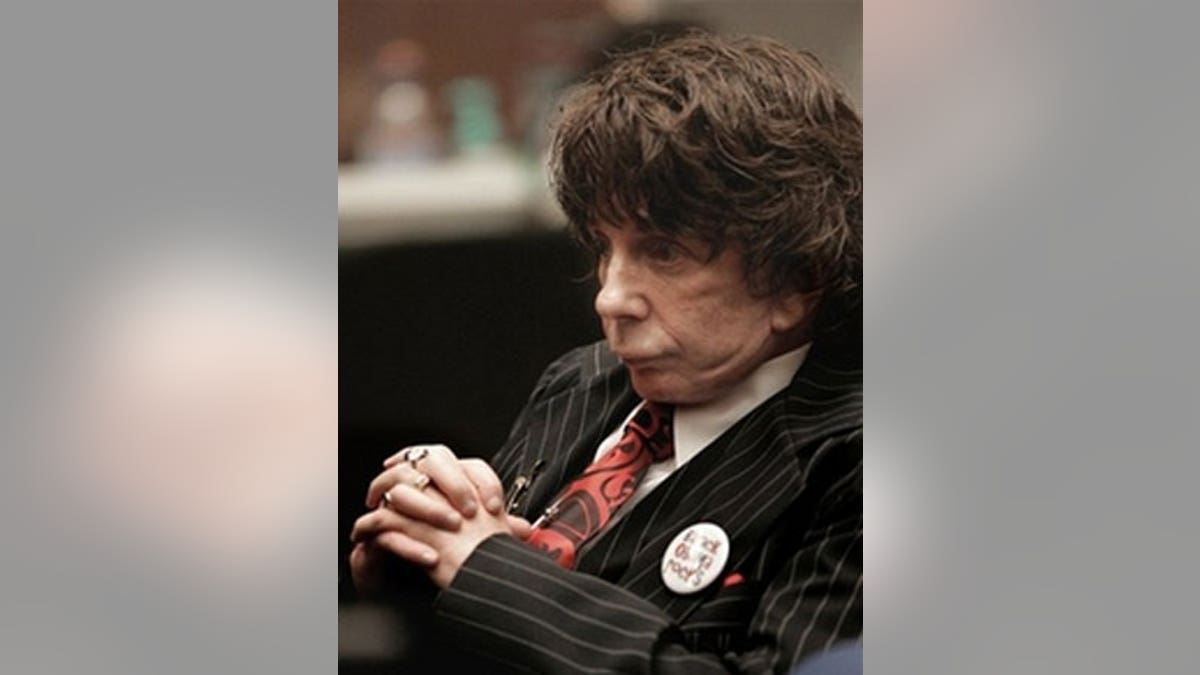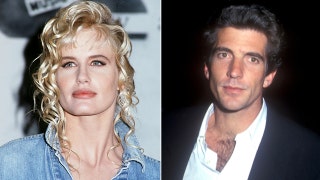
LOS ANGELES – Rock music producer Phil Spector was convicted Monday of second-degree murder in the shooting death of a film actress at his mansion six years ago, a verdict that will send him to prison for at least 18 years barring a successful appeal.
A Superior Court jury returned the verdict after about 30 hours of deliberations. The jury had the option of choosing involuntary manslaughter, but did not do so.
The panel also found Spector guilty of using a firearm in committing a crime.
Spector exhibited no reaction to the verdict. His attorney argued that he should remain free on bail pending the May 29 sentencing, but Judge Larry Paul Fidler remanded him to jail immediately.
PHOTOS: Click here for photos from the trial.
Second-degree murder carries a penalty of 15 years to life in prison. The use-of-a-gun enhancement adds three, four or 10 years in prison, according to the district attorney's office.
Defense attorney Doron Weinberg said he believed the case was swayed by the judge's erroneous rulings, particularly one that allowed five women from Spector's past to testify. He said it would be the basis for appeal and a request for a new trial.
Spector's young wife, Rachelle, sobbed as the decision was announced. It was Spector's second trial. The first jury deadlocked 10-2, favoring conviction in 2007.
The 40-year-old Lana Clarkson, star of the 1985 cult film "Barbarian Queen," died of a gunshot fired in her mouth as she sat in the foyer of Spector's mansion in 2003. She met Spector only hours earlier at her job as a nightclub hostess.
Prosecutors argued Spector had a history of threatening women with guns when they tried to leave his presence. The defense claimed she killed herself.
The murder case was a flash from Hollywood's distant past, a reminder of the 1960s when Spector reigned as the hit maker supreme with such songs as the Righteous Brothers' "You've Lost That Lovin' Feelin"' and the Ronettes' classic, "Be My Baby."
Spector, 69, who had long lived in seclusion at his suburban Alhambra "castle," was out on the town in Hollywood when he met Clarkson on Feb. 3, 2003, at the House of Blues. The tall, blond actress, recently turned 40 and unable to find acting work, had taken a job as a hostess. When the club closed in the wee hours, she accepted a chauffeured ride to Spector's home for a drink. Three hours later, she was dead.
Spector's chauffeur, the key witness, said he heard a gunshot, then saw Spector emerge holding a gun and heard him say: "I think I killed somebody."
During the trial, Weinberg disputed whether the chauffeur remembered the words accurately. In closing arguments, he listed 14 points of forensic evidence including blood spatter, gunshot residue and DNA, which he said were proof of a self-inflicted wound.
"It's very difficult to put a gun in somebody's mouth," he said.
"Every single fact says this is a self-inflicted gunshot wound," Weinberg argued. "How do you ignore it? How do you say this could have been a homicide?"
But prosecutors portrayed Spector as a dangerous man who became a "demonic maniac" when he drank and had a history of threatening women with guns. They also contended blood spatter evidence proved that Clarkson could not have shot herself.
As in the first trial, they presented testimony from five women who told of being threatened by a drunken Spector, even held hostage in his home, with a gun pointed at them and threats of death if they tried to leave. The parallels with the night Clarkson died were chilling even if the stories were very old — 31 years in one instance.
Prosecutors, haunted by the acquittals of stars such as O.J. Simpson, Robert Blake and Michael Jackson, at first seemed invested in making Spector the first star to be convicted in a major criminal case. But after the first trial ended in a deadlock, public interest faded. The second six-month trial was played out in a sparsely populated courtroom with few members of the media present.
Deputy District Attorney Alan Jackson said Monday that "justice ... was unserved up until today. Today is when the Clarkson family gets their justice."
The jury forewoman, who refused to be identified, cried as she described how the panel made its choice.
"It just is a painful decision," she said.
During jury selection, only a few panelists remembered Spector's heyday as the inventor of the "Wall of Sound" recording technique and producer of teen anthems including, "To Know Him is to Love Him," The Crystals' "Da Doo Ron Ron" and "He's a Rebel" and Ike and Tina Turner's "River Deep-Mountain High." He also worked on a Beatles album with John Lennon.














































